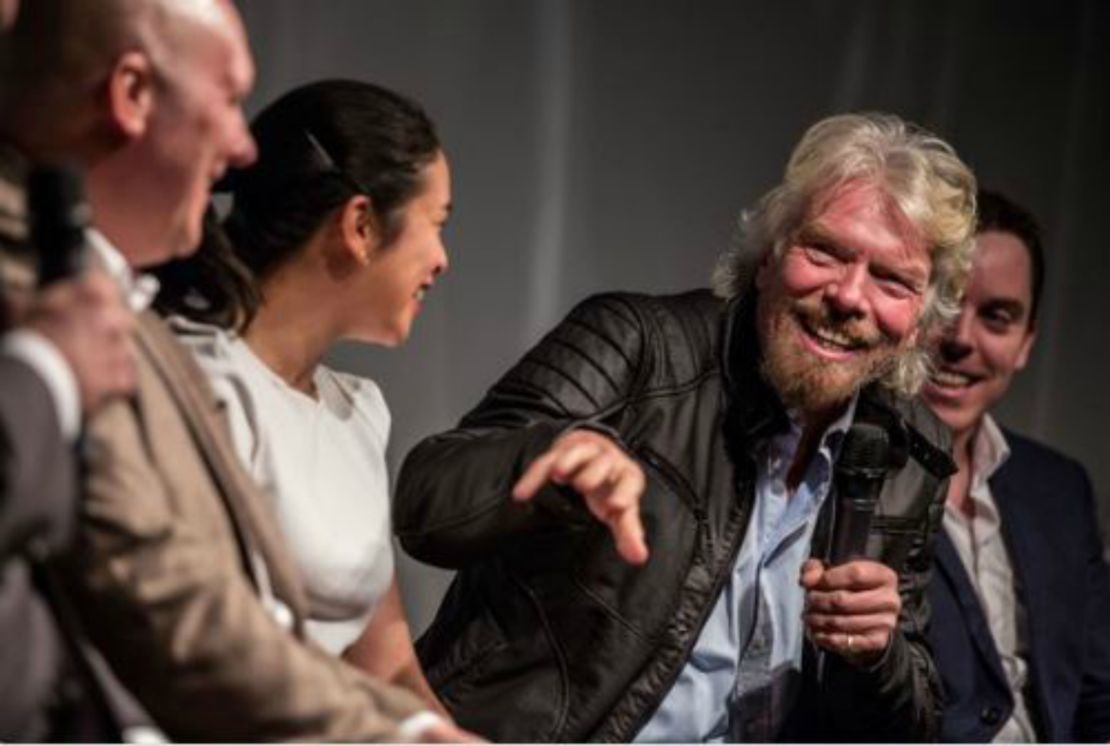Story highlights
Entrepreneurs create solution for leftover foreign money
Getting started was boosted by winning Virgin award
Pocketful of leftover pesos? Enough euros to fill a giant jar? Bewildered with your baht?
For many travelers, coming home from a trip abroad with leftover money is a hassle they could do without. But entrepreneurs Jeff Paterson and Oliver du Toit decided to do something about that, launching their Fourex currency machines – which unlike other exchanges convert both coins and cash – around London in 2015.
Soon after, the South African pair won the “New Things” category of Virgin Media’s “Pitch to Rich” competition which they saw advertised on LinkedIn. Fourex beat out thousands of competitors and took home £50,000 ($73,000) in prize money as well as an endorsement from Virgin founder and billionaire entrepreneur, Richard Branson.
“Winning that award was an absolute game-changer for us,” admits Paterson. “It’s a lot easier to open doors when you’ve got Richard Branson endorsing you.”
Yet even without the Virgin prize Fourex seemed set to achieve great things after smashing the £275,000 ($400,000) funding target Paterson and du Toit had set on the crowdfunding site, Crowdcube, in just two weeks last summer.
Is this app a Tinder for the workplace?
Marriage of sorts
Paterson said for he and du Toit, the key to success has been that they both have clearly defined roles and their business partnership is more like a marriage. “He (du Toit) is really good with the technology. I’m good with people.”
Both have worked together for years, starting back in Abu Dhabi where they were entrepreneurs frequently traveling around the region. It was returning from business trips and finding hundreds of dollars of random notes lying around that spurred the pair into action on the issue of currency exchanges.

Fourex uses image recognition technology to sort and recognize money, and getting the technology right was no easy feat. “We had to reinvent the wheel with image recognition,” said Paterson.
Existing technologies were able to deal with coins but the duo decided they might as well build machines that converted notes, too.
“It took us about three years to build the technology,” said Paterson, who added it then took another two years to build the machine.
Fourex can currently convert 180 currencies and turn them into dollars, British pounds or euros. Its first machines in London include two in the King’s Cross underground station, another at Blackfriars station and another in the city’s Westfield-Stratford shopping center.
Paterson said the plan is to roll out more machines around London’s underground network and to launch in other countries. Rates are highly competitive, explained Paterson, as the machines don’t charge a fee or commission like normal exchanges. But there is a margin added in for each transaction, he added, which is normal for all currency exchanges and how Fourex generates its profits.
Could little black box connect Africa?
Technology is king
“We’re constantly working on trying to improve the customer experience,” said Paterson, with technology being at the forefront of this challenge. Making the user experience simple and straightforward is a continual process, he added.
Customers of the machines at King’s Cross station agreed. “I used it for (getting) euro coins. It’s been good for that,” said Sylvie Clement, an IT worker from London, using the machine before a trip to France. “They should have it in France also.”
Julian Clarke, who works in construction in London, was using it to exchange euros to pounds, and said his first impression of using the machine was positive. “It’s a great thing because there isn’t really a facility for this, to change these coins in the UK with a bank.”
The Top 10 countries to start a business in Africa
Sophie Morlin-Yron contributed to this report.
















